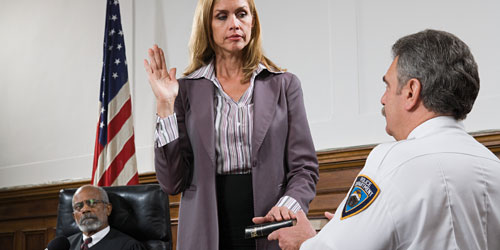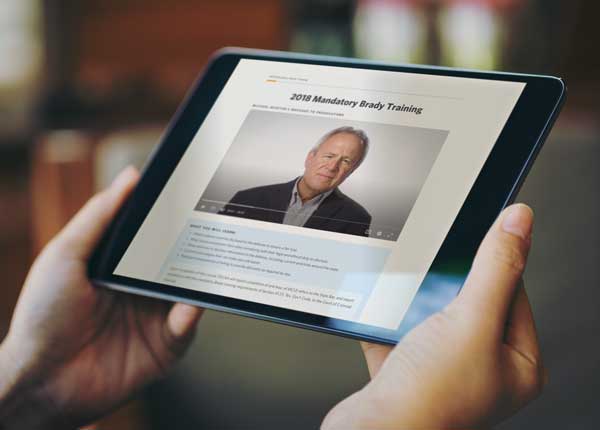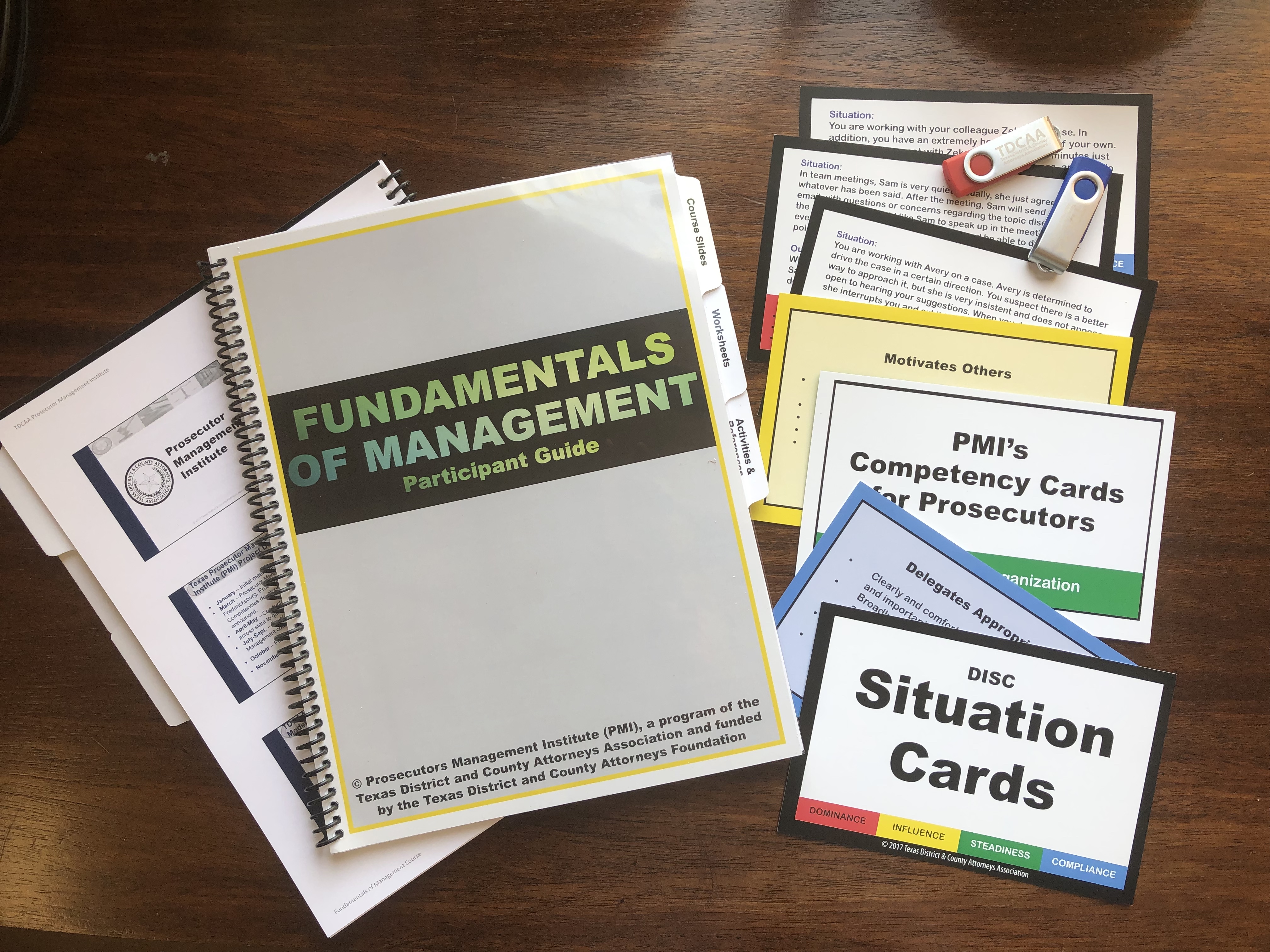Elective abortions and criminal prosecution
The U.S. Supreme Court decision in Dobbs v. Jackson Women’s Health Organization (June 24, 2022) has implications for Texas jurisprudence, including the triggering of a new felony offense relating to elective abortions that will take effect at a yet-to-be-determined date. This new crime was not summarized or discussed in our 2021 Legislative Update publications due to its contingent effective date, so we will discuss here:
- how we got to this point;
- the new trigger law;
- other abortion-related crimes on the books;
- abortion-related crimes you can’t find in your books; and
- party liability issues.
As always, our legislative update information is not intended to instruct prosecutors on what they should or should not do, but merely provide legal research and information needed by our members to make informed decisions on how best to see that justice is done in their communities.
How we got here
For more than 100 years, Texas criminalized various acts relating to the performance of an elective abortion until the U.S. Supreme Court (SCOTUS) handed down its opinion in Roe v. Wade, 410 U.S. 113 (1973), which held five Texas crimes related to abortion facially unconstitutional under the 14th Amendment’s Due Process Clause. After Roe, those crimes could not be enforced in Texas even though they were never legislatively repealed. See, Tex. Op. Atty Gen. No. JH-369 (1974) (noting that only Penal Code Art. 1195 [criminalizing abortion during natural birth] was still enforceable after Roe). In the ensuing decades after Roe, the legislature enacted new laws restricting or regulating abortion in ways that comported with Roe and its progeny, and that practice continued to the present day—but often in ways that did not rely on criminal prosecution for enforcement.
Today, SCOTUS handed down its opinion in Dobbs v. Jackson Women’s Health Organization (June 24, 2022) explicitly overruling Roe and clearing the way for states to once again regulate abortion without constitutional limits. In anticipation of just such a change, the Texas Legislature passed a “trigger law” in 2021 to prohibit elective abortions after fertilization once Roe was struck down, and this new law includes felony punishments. But as with many things that come out of the legislature, the application and enforcement of that prohibition and related laws may be more complicated in practice than they have been portrayed in media or politics.
The “Texas Trigger Law”
In 2021, the 87th Legislature passed House Bill 1280 to create Health & Safety Code Chapter 170A (Performance of Abortion), a new regulation of abortion that takes effect 30 days after Roe is overturned by SCOTUS. The chapter includes criminal, civil, and regulatory enforcement mechanisms for the same prohibited conduct; we will discuss the first two of those sanctions in greater detail because they may conflict in practice.
New criminal offense under HB 1280
The gist of new Chapter 170A is §170A.002 (Prohibited Abortion; Exceptions), which prohibits knowingly performing, inducing, or attempting an abortion at any time after fertilization. A violation of that section is a second-degree felony under §170A.004 (Criminal Offense) unless the unborn child dies, in which case it is a first-degree felony.
Other things to know about this new crime:
- “Abortion” includes surgical and non-surgical means, such as drugs/medicine (which now account for more than half of all elective abortions). The term would appear to include “selective reductions” performed as a part of some IVF treatments, but it does not include contraception, ectopic pregnancy removals, and other surgical acts listed in the definition of that term (§170A.001(1)).
- Nothing in Chapter 170A can be used to impose criminal, civil, or administrative liability upon a pregnant woman upon whom an abortion is performed (§170A.003).
- Doctors have defenses for performing an abortion to save the expectant mother from death or severe injury and for any medical treatment that results in an accidental fetal death (§170A.002).
This new criminal offense will apply to conduct occurring on or after the 30th day after Dobbs finally overrules Roe. Note that this is *not* 30 days from today; the Court’s opinion was released today, but not it’s final judgment or mandate. The Attorney General’s Office issued a legal advisory today noting this remaining contingency, along with a (speculative) comment that some abortion-related crimes may be prosecutable immediately. (More on that below.) Regardless of an such opinion, though, any criminal, civil, or administrative action brought under the new law is likely to involve litigation over the effective date of §170A.002 due to its unusual (unprecedented?) trigger mechanism.
[Update: The U.S. Supreme Court mandate in Dobbs issued on Tuesday, July 26, so the new felony offense in §170A.002 should apply on or after Thursday, August 25, 2022.]
New civil fines (and complications)
Chapter 170A also includes new §170A.005 (Civil Penalty) creating a civil penalty of not less than $100,000 for each violation of §170A.002. If this sends up a double jeopardy red flag for you, congratulations—you are probably recalling the admonition from Dep’t of Revenue of Montana v. Ranch, 511 U.S. 767 (1994), in which SCOTUS held that a defendant already convicted and punished for a criminal offense cannot have a non-remedial civil penalty imposed against him for the same offense in a separate proceeding due to the Fifth Amendment’s Double Jeopardy Clause. And the reverse is also true: If a defendant fully pays a civil fine, then any subsequent criminal prosecution is barred by double jeopardy. See, Ex parte Ward, 964 S.W.2d 617, 627 (Tex. Crim. App. 1998).
While the Double Jeopardy Clause does not prohibit the initial filing of concurrent criminal and civil actions, a conviction in the former or a full payment in the latter will foreclose the other option. Interestingly, the civil enforcement provision of §170A.005 requires the attorney general (OAG) to file a civil action to recover this civil fine. By requiring OAG to pursue a minimum six-figure civil penalty for the same conduct that potentially incurs a felony sentence of imprisonment and a criminal fine, the legislature has created a legal framework that could prevent a criminal conviction for certain violations of the new anti-abortion “trigger law” crime if any of those civil fines are collected by OAG.
Other abortion-related crimes
Despite Roe striking down Texas’s abortion laws in the 1970s, the legislature has enacted numerous restrictions on the practice since then. Those laws include administrative regulations of facilities and physicians, civil sanctions, and criminal offenses (outside the Penal Code) that target those who perform or facilitate an elective abortion. Here is a summary of some of those crimes, keeping in mind that this list is not exhaustive and that many of these crimes have exceptions, defenses, exclusions, or other elements not mentioned here.
Family Code Section:
33.002 Performing abortion on minor w/o parental notification ($2,500-10,000 civil fine)
151.002 Failing to provide treatment to a child born alive after an abortion (3F + civil fine)
Health & Safety Code Section:
171.018 Performing abortion w/o voluntary & informed consent ($0-10,000 criminal fine)
171.065 Provision of abortion-inducing drugs by non-physician (SJF)
171.103 Performing partial-birth abortion (SJF)
171.153 Performing dismemberment abortion without cause (SJF)
245.011 Paperwork violations by abortion facilities or physicians (Class A)
245.014 Operating abortion facility without a license (Class A)
How these existing laws interact with new Chapter 170A is anyone’s guess because the new “trigger law” did not amend or repeal these existing crimes. As a result, any irreconcilable conflicts will have to be decided through an in pari materia analysis in the courts, which could conclude that some of these pre-existing but more specific laws apply in certain circumstances even though they carry much lower penalty ranges. (For example, a two-year maximum state jail sentence for partial-birth abortion under §171.103 rather than a potential sentence of life in prison for general abortion under new §170A.002).
Penal Code implications
As everyone was reminded last month, there are no Penal Code charges that can be brought against a woman whose conduct results in the death of her unborn child, including by submitting to or performing her own abortion. See, Penal Code §19.06 (homicides), §22.12 (assaults), and §49.12 (intoxication manslaughter/assault). This is consistent with the non-Penal Code crimes mentioned in the previous section, all of which criminalize the conduct only of those other than the woman on whom the elective abortion is performed. It is also consistent with pre-Roe abortion crimes; our research yielded no reported cases of a woman being prosecuted in Texas for abortion under pre-Roe criminal statutes.
Note, however, that in addition to exempting conduct committed by the mother of the unborn child, PC §§19.06 and 22.12 exempt from homicide and assault prosecutions any conduct by a physician that constitutes a “lawful medical procedure” intended to result in abortion, and they also exempt the dispensation or administration of any drug “in accordance with law.” It is unclear at this time how those defenses will be narrowed in regard to conduct that was previously included within those terms but may no longer qualify after Dobbs. For example, H&SC §170A.002 will soon prohibit elective abortions upon fertilization, and H&SC §171.063 (Provision of Abortion-Inducing Drug, eff. Dec. 2, 2021) already limits the circumstances under which abortifacient drugs can be delivered or administered. The question of whether criminal conduct under those new statutes can also be prosecuted under PC Chapters 19 (Criminal Homicide) or 22 (Assaultive Offenses) may have been re-opened by this latest legislation, but it will be up to the courts to decide that after an in pari materia analysis.
What’s old is new again?
Another area of confusion involves Texas’s prior abortion-related crimes struck down by Roe. As mentioned above, those statutes were never repealed by the legislature, and they had different elements, different defenses, and different (and lower) punishments from the new offense under §170A.002. So, what happens to them now?
1925 Penal Code
The original pleadings in Roe targeted former Articles 1191–1196 of the 1925 Texas Penal Code. The Court eventually found all of them to be unconstitutional except for Art. 1195 (causing a child’s death during “parturition,” or natural childbirth). But while the Roe litigation was making its way through the courts, those same statutes were moved as part of the legislature’s first Model Penal Code project, which began in the 1960s before Roe was initiated and concluded after Roe was decided. The result of that project was the codification of a new 1973 Penal Code (effective January 1, 1974) which moved various “leftover” crimes that did not fit neatly into that model code over to the state’s Civil Statutes. Consequently, the former crimes in Arts. 1191–1196 were moved to Tex. Rev. Civ. Stat. Arts. 4512.1–6. However, a search for those statutes on the state’s own website or in your dusty old volumes of Vernon’s may only yield Art. 4512.5 (Destroying Unborn Child), the former Art. 1195 that was left standing after the Roe opinion. The other offenses struck down by Roe no longer appear in most legal resources*—but they were never explicitly repealed by the legislature. So, what happens to them now that the court decision that led publishers to remove them is no longer valid?
[* – After this update was published, the statutes previously repealed by Roe were restored to the state’s website; for the full text of those criminal statutes, click here. (added 06/24/22 at 1:40pm)]
Restoring unconstitutional laws
The legislature recognized this unanswered question in its deliberations over HB 1280, the trigger law that created Chapter 170A. To quote from the House Research Organization’s bill analysis of HB 1280, supporters of the bill stated:
“The bill would clear up confusion about whether the state’s pre-Roe statutes are still valid. Although the Legislature never explicitly repealed those laws, a non-binding 5th Circuit Court of Appeals opinion suggests that the Legislature’s enactment of laws such as those governing abortion on minors and regulating abortion facilities effectively repealed the pre-Roe laws.”
Apparently, that Fifth Circuit case is McCorvey v. Hill, 385 F.3d 846 (5th Cir. 2004, cert. denied)—a suit brought by the original plaintiff in Roe to have the opinion withdrawn after her change of heart on the abortion issue. In its opinion, the court held that McCorvey’s lawsuit was moot because Texas had impliedly repealed those old statutes criminalizing abortion by its enactment of various regulations governing the availability of abortions and the practices and procedures of abortion clinics that irreconcilably conflict with the old provisions criminalizing abortions. The resulting conflict, the court held, could be resolved only by holding that the prior crimes were implicitly repealed by the post-Roe legislation. However, this legal concept of “implied repeal” is a controversial one that is rarely favored by the courts, and it is a topic on which the Texas Court of Criminal Appeals and the Texas Supreme Court have sometimes taken different approaches, so it is impossible to predict how the matter would be resolved by the courts in this new criminal context.
Note, however, that this unresolved issue comes to a head immediately upon Roe being overturned by Dobbs. Unlike the new felony crime in §170A.002, there is no grace period before the potential restoration of the 1925-era crimes (the text of which you can read in Tex. Op. Atty Gen. No. JH-369 [1974]).
HB 1280 and SB 8 further muddy the waters
Despite the optimism of HB 1280 supporters noted above that “[t]he bill would clear up confusion about whether the state’s pre-Roe statutes are still valid,” it arguably makes the confusion worse, not better.
The simplest way to facilitate criminal prosecutions for elective abortions would have been to explicitly repeal the old laws and pass new laws in their place. For example, an earlier “trigger law” filed back in 2007 as SB 186 (80RS) by then-State Sen. (now Lt. Gov.) Dan Patrick purported to move the old Art. 4512 crimes into the Penal Code, repeal the various “competing” regulations mentioned in McCorvey, and then repeal or revise the old crimes’ 1925-era language to create new—and more readily enforceable—crimes. But rather than follow that example, the 87th Legislature did the opposite in 2021. Instead of an explicit repeal-and-replace, both HB 1280 (trigger law) and SB 8 (the fetal heartbeat bill) included legislative “findings”—a type of legislative dicta—that the former abortion crimes were never repealed. And SB 8 took things a step farther, adding this new provision to the state’s Code Construction Act:
Government Code §311.036. CONSTRUCTION OF ABORTION STATUTES. (a) A statute that regulates or prohibits abortion may not be construed to repeal any other statute that regulates or prohibits abortion, either wholly or partly, unless the repealing statute explicitly states that it is repealing the other statute.
Because HB 1280 did not explicitly repeal the old statutes struck down by Roe, it appears to have created a situation in which those old crimes will co-exist with the bill’s new felony abortion crime under §170A.002, even though that new crime irreconcilably conflicts with those old crimes in many situations. As a result, some defendants in those cases may be able to successfully challenge a prosecution under §170A.002 on the basis that its new provisions cannot be reconciled with those older—but more specifically-tailored—pre-Roe crimes which also carry much lower punishments (for example, a maximum of five years’ imprisonment for abortion under former Art. 1191 [or 4512.1], versus a potential life sentence under §170A.002). Therefore, if the former pre-Roe crimes are determined to still be valid, the courts will again be required to conduct an in pari materia analysis to determine whether the overlapping old and new crimes can be harmonized, and if not, then which more specific charge(s) the State is limited to pursuing.
The law of parties
The final post-Dobbs issue we will address here is party liability.
Currently, Penal Code §7.02(a)(2) makes a person criminally responsible for an offense committed by another if, with the intent to promote or assist the commission of the offense, he solicits, encourages, directs, aids, or attempts to aid the other person to commit the offense. The scope of this law can be broad; however, this party liability applies only to “an offense committed by the conduct of another.” Stated another way: “If no principal liability, then no party liability.” That limitation may be relevant any time the law of parties is considered an option for abortion-related offenses that, by their explicit terms, do not criminalize the conduct of a pregnant woman seeking or receiving an abortion—even one she conducts herself through medication or other means.
This limitation may be one reason some HB 1280 proponents sought to maintain the efficacy of the pre-Roe crimes (as discussed above), one of which provided that “whoever furnishes the means for procuring an abortion knowing the purpose intended is guilty as an accomplice” (See Art. 1192 [or 4512.2]). That crime appears to have been specifically intended to address the problem with the standard rule for applying the law of parties; namely, that pre-Roe laws did not allow prosecution of the pregnant woman for the crime of abortion and thus, without her as a principal, there could be no accomplice liability for anyone who prescribed or furnished her with medication or other means for aborting her child. See, Moore v. State, 40 S.W. 287 (1897) (interpreting Art. 642 of the 1895 Penal Code, a precursor to Arts. 1192 and 4512.2). However, Texas already has other criminal laws that apply to third parties—for example, a ban on the provision of abortifacients to a pregnant woman by anyone other than a doctor (see H&SC §171.065, et al.)—so a restoration of any pre-Roe “accomplice” liability law may conflict with post-Roe, pre-Dobbs statutes already criminalizing such acts and therefore have to be hashed out through yet more in pari materia analysis by the courts.
Such an analysis may be yet further complicated by the legislature’s passage in 2021 of SB 8 (fetal heartbeat bill), which created a new form of civil liability in H&SC §171.208 (Civil Liability for Violation or Aiding or Abetting Violation) that applies to the performance of an elective abortion or the aiding or abetting of such an abortion in violation of the provision of that bill, but which expressly prohibits the criminal prosecution of those acts under that new law or Penal Code Chapters 19 and 22; see §171.207 (Limitations on Public Enforcement). While the constitutionality of SB 8 is still being litigated in the federal courts, its enactment may be relevant to any state courts seeking to determine what criminal offenses may or may not be prosecuted under a party liability theory.
Consequently—as with many of the other issues we’ve spotted in this memo—prosecutors should thoroughly research these issues before casting the net of party liability in a manner that exceeds its permissible scope in the criminal context.
Conclusion
As if often the case at the Legislature when criminal laws are drafted by authors without expertise in criminal law and then vetted by committees without expertise in criminal law, there remain many unanswered questions about the enforcement of HB 1280 and other laws that will have to be hashed out by the courts. We hope our initial research provides TDCAA members with the information needed to make informed decisions in any cases brought to them for enforcement. If you have further questions, please don’t hesitate to contact us.
###



